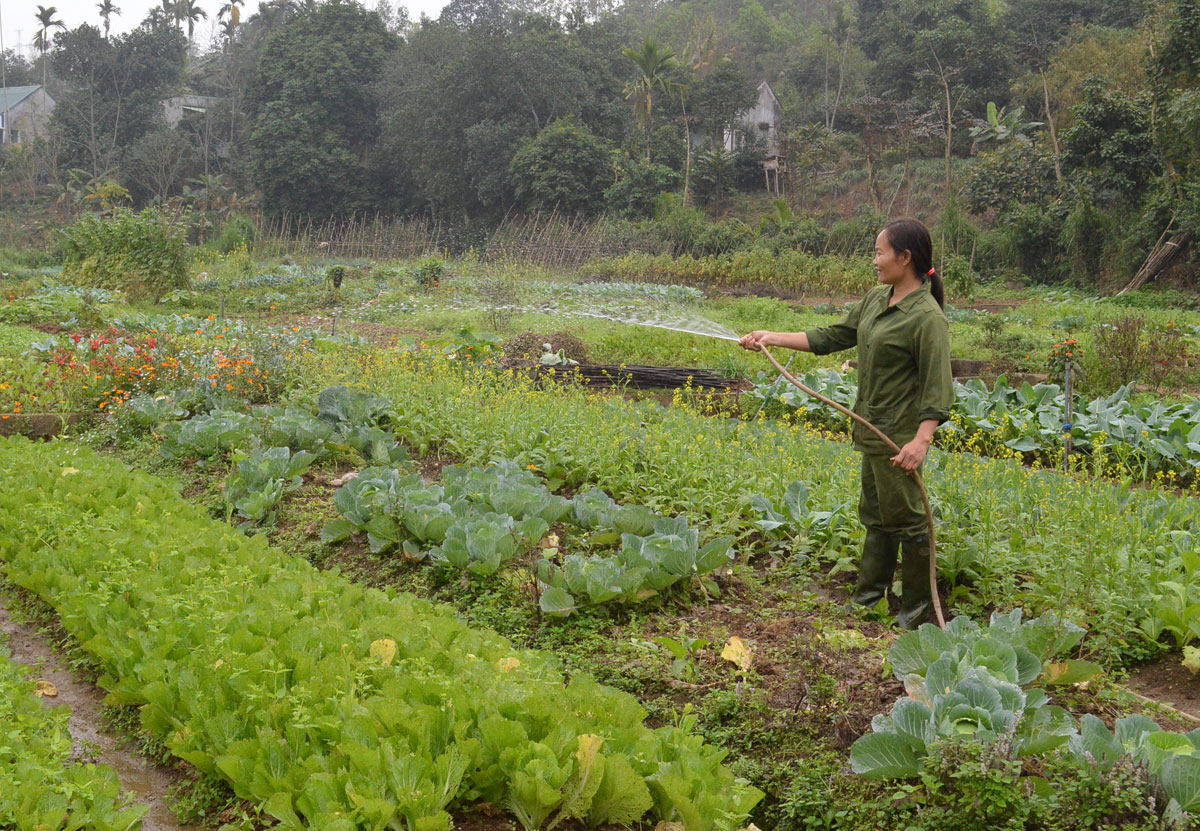


 The Luong Son organic farm
produce cooperative in Luong Son township of Luong Son district has developed
organic vegetable farming, with products sold well in the market.
The Luong Son organic farm
produce cooperative in Luong Son township of Luong Son district has developed
organic vegetable farming, with products sold well in the market.
Aware that human resources are important to the development of cooperatives, attention has been paid to training. In 2020, five refresher courses were organised for 250 people holding management positions of cooperatives such as chair and vice chair of board of directors, director, and deputy director. The training focused on improving participants’ knowledge about the administration and management of cooperatives, trade promotion, product marketing, and business planning.
Two other courses were held for cadres of state agencies in district- and commune-level localities to update them with knowledge about the collective economy. Two vocational training classes were also opened for members of cooperatives. Hoa Binh also sent 17 young cadres to work in 13 cooperatives in the hope that high-quality personnel will help with their production and business activities.
All-level authorities and sectors have paid attention to providing cooperatives with information and assistance in seeking markets, advertising products, and linking cooperatives with businesses.
Last year, Hoa Binh agencies helped more than 40 cooperatives take part in fairs held in the province and other localities while supporting the provincial Cooperative Alliance with 350 million VND (over 15,100 USD) to organise a business matching conference and a large-scale exhibition on the collective economy, among others.
The provincial People’s Committee granted 1 billion VND to the provincial support fund for cooperative development in 2020, raising its charter capital to 6 billion VND. The fund lent 800 million VND to four cooperatives, bringing the total outstanding loans so far to 9.43 billion VND.
As of December 31, 2020, banks and credit institutions had given 29.76 billion VND in loans to local cooperatives, accounting for 0.12 percent of total loans in Hoa Binh and rising 14 percent from 2019.
Meanwhile, the assistance for cooperatives in applying science and technology has helped them improve labour productivity and product quality and created jobs for rural residents. In 2020, some cooperatives in the industry and trade sector were supported to modernise their equipment and machinery. Local authorities also helped many to develop and use collective trademarks while guiding them in registering industrial design, brand, and industrial property.
In addition, cooperatives have benefited from registration fee and land use tax incentives so as to ensure that they are treated on equal terms with other economic elements.
To help agricultural cooperatives build infrastructure, Hoa Binh authorities approved financial aid for constructing eight new infrastructure facilities worth 8.45 billion VND in total at the proposal of eight cooperatives. So far, 24 infrastructure projects with total investment of nearly 22.83 billion VND of 24 cooperatives have received assistance, with 14.3 billion VND financed by the local budget and almost 8.53 billion VND from cooperatives themselves.
Benefiting from support policies, 210 agricultural cooperatives in the province reported profits last year. Thirty-three products of 14 cooperatives were recognised as provincial OCOP products in 2020, raising the total products of this kind to 39, including nine rated four stars and 37 rated three stars. Twenty-four cooperatives were also honoured as role models at the provincial level./.